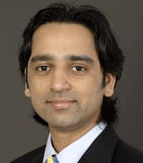

The Ashok Piramal Group has multiple business interests. How has the journey on textiles course so far been?
Well, Morarjee Textiles was founded in 1871 and was taken over by my family in 1934, so it has been a long journey indeed! The journey has been full of ups and downs. However, after passing through a tough phase following the Mumbai textile strike of the 1980s, the company has done well. Of course, due to the global recession times have once again become demanding. But today we are in a fortunate position where, after many years of hard work, our products are recognised amongst our customers and even competitors as world class.
What remarks would you make on global textile and clothing industry these days? Where do you see Indian textiles and clothing placed on the map of this industry?
The global textile and garments industry is going through an extremely tough phase. As you know, global demand has reduced dramatically as retail sales in the largest markets, the US and Europe, have registered declines or minimal growth in the last 2 quarters. Add to this the overcapacity that exists around the globe, and I would say that we have not seen the end of consolidation or closure for textile and garment producers. We in India are not immune to this either - India’s share of the world market is only about 4%, but we have not been spared – most textile and garment units are running at minimal capacity utilisation today. The recession has made current environment extremely challenging – today the only way to survive in India is to either have world-scale capacities or to be a niche player manufacturing high end fabrics or garments.
Which all trends do you notice currently amongst consumers demand? How do your products acquiesce with these trends?
Consumers are increasingly switching to cheaper products, and prices are coming under pressure. However, there is a niche market for high-end fabrics that exists even today. We are fortunate that we have focused exclusively on high-end markets for the past 10 years and are not saddled with large capacities. We continue to serve this market today, and are trying to offer our customers better value from the same product.
Myriad of players are there in line to your business kind. In the face of such a fierce competition, what helps your Company maintain its popularity?
We are fortunate that in several of our products, we are recognised to be world class in terms of quality. As I mentioned earlier, we are trying to give our customers better value from the same product, for example by providing shorter delivery times or by changing the fabric construction to reduce cost.
How would you like to comment on upshots of disparity in Indian Cotton Prices in comparison to international prices? Your major fabrics are cotton made, how do you handle such situations in order to safeguard your profit margins?
Morarjee uses imported cotton for its shirting fabric as we require long staple quality cotton to produce premium fabric. The cost of imported cotton has reduced recently from its peak 6 months or so ago. The other thing that we do is cover cotton prudently when price trends are more favourable.
In current hard times for industry, Indian government has been considerate to announce various cuts on energy prices, Repos/ Reverse Repos and stimulus packages for textile industry. How do you find these announcements biding for your business?
There were two major decisions. One was to reimburse part of the interest on the loans obtained under the TUFS. While this policy was in place, the reimbursements took very long. The government has decided to clear the dues as a result of which companies will have some more inflows. Secondly, the government has increased the moratorium period for repayment of loans by an additional year. These decisions will give the industry a breather going forward.
#######
DISCLAIMER: All views and opinions expressed in this column are solely of the interviewee, and they do not reflect in any way the opinion of Fibre2Fashion.com.